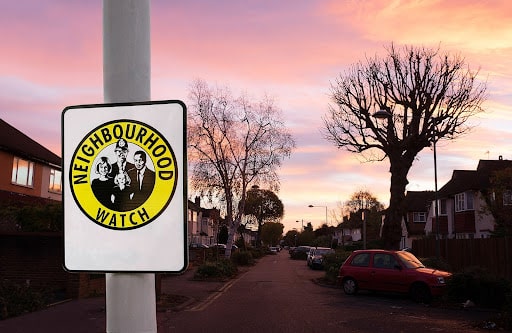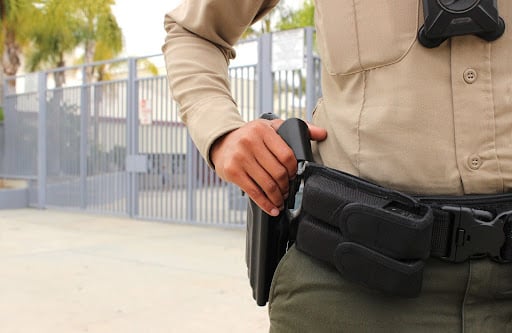

Homeowners associations play a significant role in maintaining HOA security and safety. With the rise in security concerns across residential areas, HOAS must implement effective measures to protect residents and property.
The extent of an HOA's responsibility for security varies depending on the specific provisions outlined in its governing documents, such as the CC&Rs and bylaws, as well as state and local laws. Generally, an HOA may have certain responsibilities related to security within the community's common areas. However, the extent of an HOA’s responsibilities for individual property security may differ.
Taking on too much responsibility when it comes to security can cause problems in the long run. Shouldering full responsibility for homeowners’ security and safety may create liability for the association. Homeowners may develop a false sense of security and blame the HOA if anything goes wrong. As such, it is best to turn to an HOA attorney for advice.
While it is dangerous for an HOA to assume full responsibility for security, associations should not completely neglect it. Here are some ways to help improve homeowners association security.
Hiring dedicated security personnel to patrol the community can provide a visible deterrent to crime and unauthorized activity. Security guards can monitor access points, conduct inspections, and respond promptly to security concerns or emergencies.

Contracting with HOA security companies gives associations access to a range of comprehensive security solutions tailored to the community's specific needs. These services may include regular patrols, alarm monitoring, emergency response, and security assessments to identify vulnerabilities and recommend improvements.
Installing surveillance cameras in strategic locations throughout the community can help monitor activity and provide valuable evidence in the event of incidents such as vandalism, theft, or trespassing. Modern surveillance technology allows for remote monitoring, real-time alerts, and cloud storage of footage for easy access and review. Plus, plenty of design options would work with just about any community’s aesthetic.
Implementing access control measures, such as gated entryways, keycard systems, or keypad locks, can regulate entry and exit points within the community. Access control systems help prevent unauthorized individuals from entering the premises. Moreover, they enhance security by monitoring and controlling access to common areas and amenities.
A neighborhood watch program can promote community engagement and safety. However, the HOA shouldn't actively participate in such a program. Homeowners can start a neighborhood watch themselves, but the HOA should free itself from liability.
Additionally, the HOA should encourage neighborhood watch groups to coordinate with local law enforcement. When a potential danger arises, the watch group should never take action on its own; instead, it should report the incident to the police.
Adequate lighting is crucial in deterring criminal activity and enhancing visibility within the community. HOAs should ensure that common areas, walkways, parking lots, and recreational facilities are well-lit, particularly during evening hours.
Motion-activated lights and timers can enhance security by illuminating dark areas and alerting residents to threats. They also help save the association money, as they only turn on when something triggers them.
Landscaping can be utilized as a security measure by strategically planting shrubs, trees, and foliage to minimize hiding spots for potential intruders. Smart landscaping can also help improve visibility for residents and security personnel.
HOAs should maintain landscaping to ensure clear sightlines and remove overgrown vegetation that may obstruct views or provide cover for criminal activity. Of course, this may take some expertise to execute. Therefore, an HOA should turn to a security professional for assistance and a reputable landscaping company.

An HOA board should also consider providing homeowners with security awareness training. This, coupled with offering the right resources, allows them to protect themselves and their property actively. Remember that an HOA is not responsible for individual homeowners’ safety. However, that does not mean an HOA cannot do anything to equip owners with the necessary tools and knowledge to help themselves.
Associations can organize workshops, distribute informational materials, and offer online resources. It also helps to publish crime prevention tips and home security tips. An HOA can invite security experts and local police to speak at a seminar.
Establishing partnerships with local law enforcement agencies fosters communication, collaboration, and mutual support in addressing security concerns within the community. HOAs can work closely with law enforcement to share information, report incidents, and coordinate emergency responses. This ensures a coordinated approach to maintaining safety and security.
Something as simple as maintaining cleanliness within the community can help boost security. A clean neighborhood enhances visibility and minimizes hiding spots. It also helps deter criminal activity and prevent property damage. If nothing else, a clean community promotes a positive perception among residents and visitors alike.
While HOAs have a role in maintaining security, avoiding taking on excessive responsibility to prevent legal issues is crucial. Instead, associations can enhance HOA security by implementing the strategies above. As with most things, an HOA board should turn to its legal counsel for advice when in doubt.
Vanguard Management Group offers HOA management services, including help with HOA security. Call us today at 813-930-8036 or contact us online to learn more!
